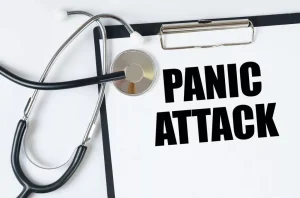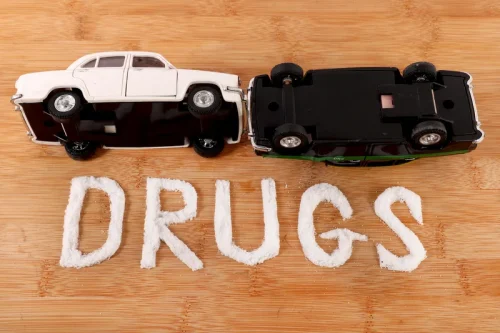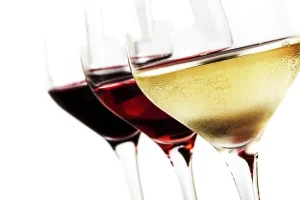
People withdrawing or detoxing from substances including alcohol may often crave sweets. Experts think this may in part be because sugary foods stimulate similar brain processes as drugs. While you are in recovery, it is important to not substitute one addiction for another. For this reason, many experts recommend against sugary foods while you are in detox. Because alcohol can slow down or even stop the absorption of nutrients, you can expect to deal with nutritional deficiencies if you continue to drink heavily. For example, you may lack adequate levels of vitamin A in your system, which can lead to vision impairment and dry skin.
Vitamins & Supplements for Alcohol Recovery
Cirrhosis is unfortunately irreversible, though you can slow its progress by ceasing alcohol consumption and eating an anti-inflammatory diet. As you’ve likely heard, heavy alcohol consumption can be damaging to your brain. And since your brain needs certain fatty acids to function optimally, eating enough good fats is key in a healthy diet for alcoholics. One reason why a proper alcohol detox diet is important is that alcohol abusers may suffer from malnutrition. Those who have AUD may experience the short-term and long-term side effects of malnutrition.
Sugar Cravings

A good alcohol detox diet is just one component of a supportive care plan for people who are detoxing from alcohol. A multivitamin containing potassium, calcium, vitamin A, vitamin D, vitamin C, and other essential nutrients can also support physical recovery during and after detox. Complex carbs, such as lentils, whole-grain bread, and fruits and vegetables offer several benefits for people who are in this early stage of alcohol addiction recovery. Even so, it’s important to take steps to avoid becoming too dehydrated or malnourished during detox, whether that involves finding a medical detox program or eating a balanced diet at home. However, these foods often lack vitamins to replenish the body with nutrients. The United States Department of Agriculture states that fruits and vegetables are filled with vitamins, dietary fiber, folic acid and potassium.
Addiction Treatment at Orlando Recovery Center Drug and Alcohol Rehab
One study found that around 70% of participants had sleep problems when they were admitted for alcohol treatment. That number dropped to 50% when the participants went home, and many reported that their sleep quality got better after treatment. Studies have also connected alcohol use to an increased risk of stroke, especially for people under the age of 45 years old. People who drink heavily are about twice as likely to have a cardiovascular event within 24 hours than people who do not drink at all. If you look out a longer time, people who drink are six times more likely to have a cardiovascular event within a week compared to people who don’t drink. When you quit drinking, you’ll probably notice that the colds, flu, and other illnesses you always seem to catch happen less often.

Detox and Rehab: Way to Deal with Heroin Withdrawal
B vitamins are involved in many processes that are essential to a successful recovery, and they’re often depleted in people who have been drinking heavily for a long time. B vitamins help the body make energy and play a role in the production of serotonin, and they are essential for healthy nervous system function. Some patients may crave unhealthy foods that are high in sugar during detox. Berries have healthy natural sugars that can satisfy your sugar cravings during detox. They are a perfect companion to your alcohol detox diet since they also contain plenty of vitamins and minerals.
That said, everyone’s relationship with food is different, and your diet shouldn’t be a point of immense stress, especially in early sobriety. If a few more sugary snacks will prevent you from drinking, it can be okay to treat yourself a bit more than usual. For those in the withdrawal phase, the most common food craving is sugar. One reason this occurs is https://ecosoberhouse.com/ because blood sugar levels are known to fluctuate during early recovery, causing someone to crave sugar more than usual. Sugar can also provide a dopamine release, which can feel especially satisfying for someone already craving the dopamine burst alcohol provides. This can be desirable for those managing withdrawal symptoms like fatigue and insomnia.
Best Foods for Alcohol Detox

Get started by speaking with one of our compassionate treatment specialists. For more information about how much of an impact food has on addiction rehabilitation therapy here at GMBHC and get started on this journey today by contacting us now. Multivitamin supplements can also help you get the required amount of vitamins and minerals you need. Look for a multivitamin (or several) that contains omega 3 fatty acids, magnesium, zinc, and of course vitamins A, B, C, D, and E.
- It also helps with the withdrawal symptoms that come with quitting drinking such as nausea.
- While the recovery period may be challenging, it’s also filled with milestones that can transform your life into one that’s better than you could have previously imagined.
- Embarking on an alcohol recovery journey is a significant step that requires not only personal commitment but also professional guidance and support.
- Prolonged alcohol consumption can lead to deficiencies in essential vitamins including B6, thiamine, and folic acid.
- As you feel more stable and watch the pounds shed from your mid-section, you’ll stop missing sugary beverages forever.
- In conclusion, a properly planned and executed alcohol detox meal plan can play a significant role in managing withdrawal symptoms and promoting long-term recovery.
What Causes Alcohol Withdrawal Symptoms?

When an individual consumes unhealthy amounts of alcohol over an extended period of time, their body can adapt to the depressive effects of alcohol, which slows down the central nervous system. When a person then stops alcohol recovery diet drinking alcohol, their central nervous system can become hyperactive and dysregulated, leading to various withdrawal symptoms. Some of the most common withdrawal symptoms include anxiety, nausea, insomnia, and shakes.

Foods To Avoid During Alcohol Recovery
- These deficiencies can contribute to a range of health issues that complicate recovery from alcohol dependency.
- Also, because of the way alcohol affects our brain chemistry, it’s common to experience mood swings in early sobriety.
- Look for supplements containing NAC if you are having trouble consuming enough whole foods containing cysteine.
- These vegetables are full of nutrients commonly depleted during heavy alcohol use, such as potassium, vitamin A, and calcium.
- Many people find that they can’t resist the craving for something sweet.
- When you drink alcohol, the brain makes less of this hormone, causing you to urinate more frequently and become dehydrated.
